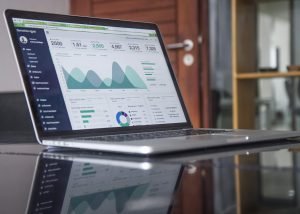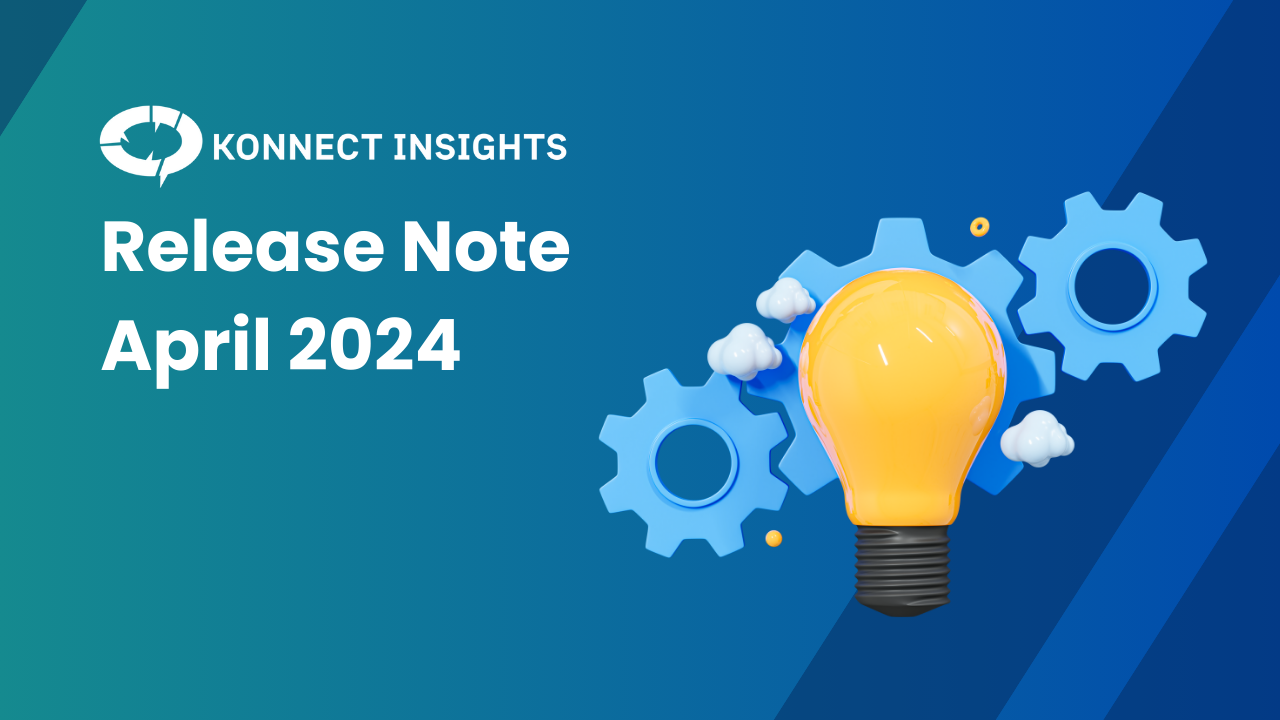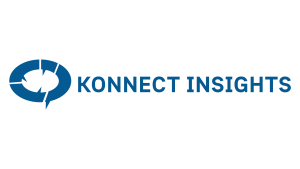Amid today’s rapid digital evolution, businesses must comprehend their customers deeply. Social listening, the practice of monitoring online conversations across various platforms, allows tracking keywords, phrases, and brand mentions. According to Hootsuite’s 2022 Social Media Trends survey, 65.6% of over 18,000 participating marketers said social listening has become valuable and important for their organization
This analysis yields insights into customer preferences, needs, sentiments, and industry trends, offering effective integration examples into digital marketing strategies.
Let’s explore some examples of how social listening can be used effectively in digital marketing strategies.
Listening to Your Audience
One of the key benefits of social listening is gaining a comprehensive understanding of your audience. By closely monitoring what customers are saying about your brand and products/services, you can identify patterns and trends that can inform your marketing strategies.
Brand Sentiment Analysis
Social listening allows businesses to gauge the sentiment surrounding their brand. By analyzing the tone of conversations mentioning your brand across various platforms, you can determine if customer sentiment is positive, negative, or neutral. This information enables you to make informed decisions about how to respond to customer feedback and improve customer satisfaction.
For example, let’s say a popular cosmetics brand notices an increase in negative sentiment on social media platforms due to customer complaints about skin irritation caused by one of their skincare products. By utilizing social listening tools and techniques, the brand can quickly identify this issue and take immediate action to address it. They may decide to offer refunds or replacements to affected customers while working on improving the product formulation.
Product Feedback Loop
Social listening provides an excellent opportunity for businesses to gather real-time feedback on their products or services directly from consumers. By actively engaging with customers through social media comments, reviews, and discussions, businesses can gain insights into what their customers like or dislike about their offerings.
Let’s consider a software company that develops project management tools. By regularly monitoring social media conversations, online forums, and review sites, they can identify common pain points or feature requests from their target audience.
Armed with this information, the company can then prioritize product enhancements or develop new features that address these customer needs. Not only does this ensure customer satisfaction and loyalty, but it also gives the company a competitive edge in the market.
Also Read : How to enhance product innovation using social listening?
Competitor Analysis
Social listening isn’t just limited to monitoring your brand; it’s also a valuable tool for keeping an eye on your competitors. By tracking what customers are saying about your competitors’ products and services, you can gain insights into their strengths and weaknesses, identify gaps in the market, and refine your marketing strategies.
Competitive Benchmarking
Let’s say you’re a fashion retailer looking to understand how your competitors are performing in the market. Through social listening, you can analyze conversations around your competitors’ products, pricing, customer service, and overall brand reputation. This allows you to benchmark their performance against yours and identify areas where you can differentiate yourself.
For instance, if you notice that customers are consistently praising one of your competitors for their sustainable manufacturing practices, you could leverage social listening insights to improve your sustainability initiatives.
By actively incorporating these values into your marketing messaging and product offerings, you can attract environmentally conscious customers who would otherwise choose your competitor.
Monitoring Industry Trends
Keeping up with industry trends is crucial for any business looking to stay ahead of the competition. Social listening provides real-time insights into emerging trends within your industry. By monitoring mentions of relevant keywords or industry-specific hashtags, businesses can identify new opportunities for innovation or pivot their strategies to align with changing consumer demands.
Consider a technology company specializing in smart home devices. Through social listening, they discover an increasing number of discussions around voice-controlled devices in the home automation space.
Armed with this information, they can adjust their product development roadmap to focus on voice integration and marketing efforts to position themselves as leaders in this market segment.
Influencer Marketing
Influencer marketing has become an integral part of many digital marketing strategies. By leveraging the power of social media influencers, businesses can reach their target audience more effectively and build trust and credibility. Social listening plays a crucial role in identifying the right influencers for your brand and measuring the success of influencer campaigns.
Influencer Identification
Let’s say you’re a health and wellness brand looking to collaborate with influencers to promote your new line of organic food products. Through social listening, you can identify popular influencers within the health and wellness niche by tracking conversations around relevant keywords or hashtags. By analyzing the engagement rates, sentiment, and authenticity of these influencers, you can select those who align with your brand values and have a genuine connection with their audience.
Using social listening tools, you can also monitor how consumers are responding to influencer collaborations by tracking mentions and sentiment around these campaigns. This allows you to evaluate the effectiveness of your influencer strategy and make data-driven decisions for future campaigns.
Also Read : 8 Ways To Use Social Listening To Gain Competitive Advantage
Campaign Evaluation
After launching an influencer marketing campaign, it’s essential to measure its impact on brand awareness, engagement, and conversions. Social listening provides valuable insights into the success or shortcomings of these campaigns by tracking online conversations related to the campaign hashtag or mentions of your brand alongside the influencer’s content.
For instance, a travel company partnering with travel bloggers for a destination promotion campaign can use social listening to analyze the reach and engagement of the influencer-generated content.
They can also evaluate customer sentiment towards the campaign by monitoring feedback from followers in comments, reviews, or direct messages. This information helps them refine their future influencer marketing strategies and maximize ROI.
Do you know how you can use social listening for social media advertising campaigns?
Crisis Management and Prevention
In today’s digital landscape, crises can arise swiftly due to an unfortunate incident or miscommunication. Social listening plays a vital role in crisis management and prevention by providing real-time insights into emerging issues, allowing businesses to address them promptly and effectively.
Crisis Prevention
Social listening enables businesses to proactively monitor conversations and detect potential crises before they escalate. By tracking mentions of your brand, products, or industry-specific keywords, you can identify any negative sentiment or emerging issues. This allows you to take immediate action, such as addressing customer concerns or correcting misinformation.
For example, a telecommunications company may use social listening to monitor online discussions around network outages or service disruptions. By detecting early signs of frustration or complaints from customers, the company can quickly communicate updates, provide assistance, and reassure customers before the situation escalates into a full-blown crisis.
Real-time Crisis Management
In the event of an actual crisis, social listening becomes even more critical. It allows businesses to monitor conversations in real-time and respond promptly to address customer concerns and mitigate further damage.
Let’s consider a food delivery service that experiences a security breach resulting in customer data being compromised. Through social listening, the company can track mentions of the incident and respond with timely updates on steps taken to resolve the issue and ensure customer data security.
By actively engaging with affected customers through social media comments or direct messages, they can restore trust and demonstrate their commitment to customer privacy.
Content Strategy and Campaign Optimization
Developing an effective content strategy is essential for attracting and engaging your target audience. Social listening provides valuable insights into what content resonates with your audience, allowing you to optimize your campaigns for maximum impact.
Content Personalization
Personalization has become increasingly important in digital marketing. Social listening helps businesses understand their audience’s preferences by monitoring conversations around topics related to their brand or industry. This information allows them to develop highly relevant and personalized content strategies that speak directly to their target
audience’s needs and interests.
For instance, a beauty brand can use social listening to identify trends in makeup and skincare routines that are gaining popularity among their target audience. By creating content that aligns with these trends and addressing customer pain points or questions, they can establish themselves as a trusted source of information and drive engagement.
A/B Testing and Optimization
Social listening provides valuable insights into the performance of your content campaigns. By monitoring engagement levels, sentiment, and feedback from your audience, you can identify which content resonates most effectively and refine your approach through A/B testing.
Consider an e-commerce company running a social media campaign to promote their latest collection. Through social listening, they analyze the engagement levels of different types of content, such as lifestyle imagery versus product-focused posts.
By comparing the performance of these variations, they can optimize future campaigns by focusing on the content that generates the most impact and conversions.
Conclusion
In this digital age, social listening has become an indispensable tool for businesses looking to understand their customers better, stay ahead of competitors, leverage influencer marketing, manage crises effectively, and optimize their content strategies.
By harnessing the power of social listening tools and techniques, businesses can gain deep insights into customer sentiment, industry trends, and competitor strategies.
These insights enable them to make data-driven decisions that drive customer satisfaction, brand loyalty, and business growth. As digital marketing continues to evolve rapidly, embracing social listening is crucial for staying relevant in today’s competitive landscape.































